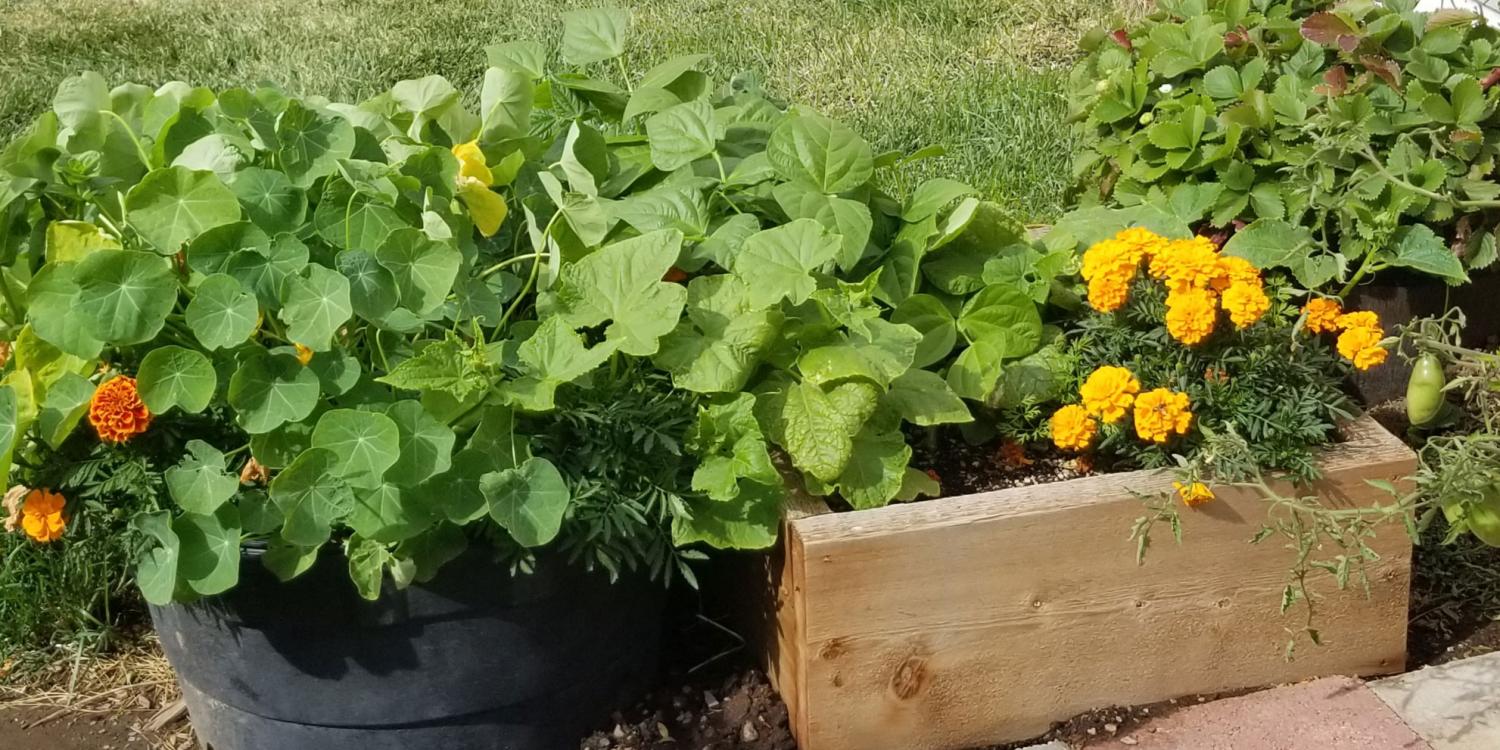
With the onset of the COVID-19 pandemic, it became clear that it wouldn’t be possible for the Oregon State University Extension Service to conduct in-person learning garden classes at the Warm Springs K-8 Academy and OSU demonstration/learning gardens in the Confederated Tribes of Warm Springs community. The pandemic also exposed the vulnerability of food insecurity in Warm Springs – even in the best of times, the community is considered a food desert.
With just one market offering groceries to a population of 3,200, most residents travel out of Warm Springs to buy food. The entire Warm Springs school district qualifies for free breakfast, lunch and after-school meals. Stay-at-home orders and restrictions on school, travel and businesses created uncertainty for tribal members’ access to fresh food.
Growing community and home gardens is a proven method of assuring food security and an encouraging motivator to continue work in the development of food sovereignty, security, and resilience in the Warm Springs community. OSU Extension in Warm Springs collaborated with the Warm Springs Community Action Team to conduct a needs assessment to figure out food supply, food preference, and technical support needs.
That initial work led to The Grow at Home Garden Program, a project to help residents grow their own food at home through garden kits. Each kit includes a raised garden box, four bags of soil, vegetable seeds and two marigold plants. The kit also includes directions to set up the 2-foot by 2-foot garden box and planting, and OSU Extension Food Hero vegetable informational sheets, recipes and youth coloring pages.
Extension also leveraged grant funding to build protective garden fences at the Warm Springs Tribal Senior Wellness Center and Simnasho Community in Wasco County. These new learning gardens offer safe senses of place to participate in meaningful and purposeful actions, create additional platforms to encourage and spark interest in growing food, and build community and address and establish food security and food sovereignty.
Extension’s Warm Springs Agriculture and Community Gardening team spearheaded the effort. It includes John Brunoe, 4-H and Family Community Health educator; Ellise David, 4-H education program assistant; Tracy Wilson, Extension local liaison to the Confederated Tribes of Warm Spring; and Olivia Davis, Extension SNAP-Ed outreach coordinator and Family and Community Health educator.
In 2020, 110 raised garden beds were built and delivered to youth and their families. The initiative received funding from the Native American Agricultural Fund to create an additional 550. Families said they looked forward to growing vegetables and flowers with their children and one grandparent requested kits for her grandchildren.
Fresh produce grown from the Extension Warm Springs learning gardens and Warm Springs K-8 Academy School Garden was delivered to the Warm Springs Tribal Senior Wellness Center, Warm Springs Children’s Protective Services Center, and Warm Springs Community Action Food Cart. Staff from the Warm Springs K-8 Academy also benefited from the fresh produce grown at the school garden. Extension is working with the senior wellness center’s head cook and management to grow foods for the elder kitchen and creating a pleasing area for elders, staff and community members to participate in gardening activities.